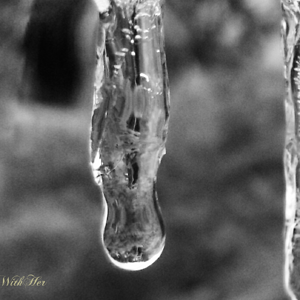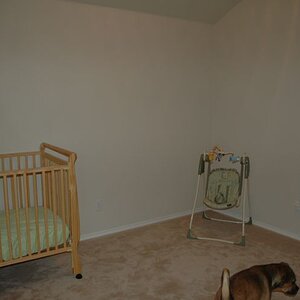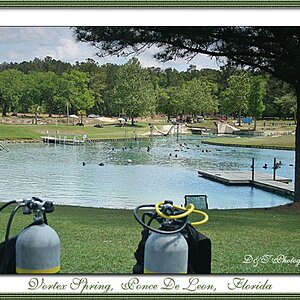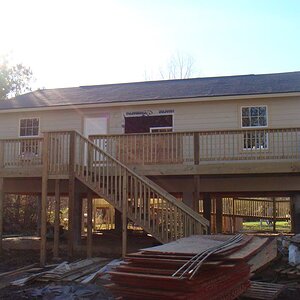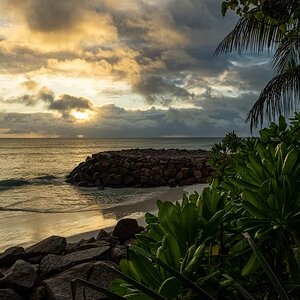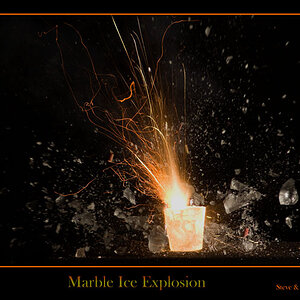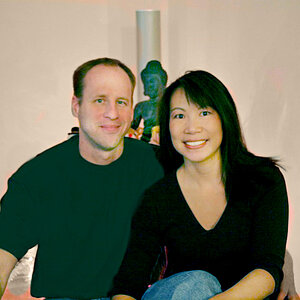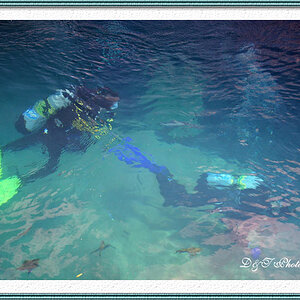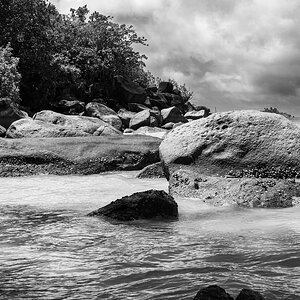Er... hello? (waiting for eyes to adjust to the dark)... ah there you all are.
Ferny suggested I venture into the dank, subterranean realm of The Darkroom forum to ask about developing my own black and white film. So here I am By now you've probably been asked the same question enough times to wonder if you're stuck in some kind of time loop in an episode of the X-Files (yeah I could have mentioned any sci-fi series, but I'm too young for Twilight Zone references and have too much self-respect for Star Trek ones
By now you've probably been asked the same question enough times to wonder if you're stuck in some kind of time loop in an episode of the X-Files (yeah I could have mentioned any sci-fi series, but I'm too young for Twilight Zone references and have too much self-respect for Star Trek ones  . Perhaps you could enlist the help of a programming genius to create a bot or AI program that answers all these noob questions. Um, anyhoo...
. Perhaps you could enlist the help of a programming genius to create a bot or AI program that answers all these noob questions. Um, anyhoo...
I have barely enough space to turn around in my house, so a "real darkroom" is out of the question. In any case I only need to develop, not enlarge (I couldn't justify buying the extra equipment and paper even if I had room for it). I do have a small cupboard (translation: closet) I could probably sit in at night without worrying about light leaks, so getting the film onto the reel and into the tank shouldn't be too much of a problem. Therefore my question is; what do I need? From memory I've come up with a list of what I used when developing before...
: Thingy-that-gets-the-film-out-but-which-only-works-sometimes (guessing that's not the technical name name for it)
: Film reel
: Film tank
: Developer
: Fixer
: Stop Bath
: Measuring jug for measuring/diluting/pouring developer & fixer
: Film clips
: Squeegee (sp?)
I think the list is complete, but could someone please let me know if there's something I've missed? Water for example, is tap water ok or should I be buying special distilled water, or melted snow from the Swiss Alps blessed by Tibetan monks in Mexico? Also how important is the stop bath; I never really used it before since they were always running out of it at college, but does that mean my old films will be disintegrating by now?
And the main question is, although I've got a list of generic items, what specifically should I get? I used to use plastic reels with ball bearings, and plastic tanks. Both worked fine although the reels could be a bit fiddly. I also have no idea what brand of developer or fixer to buy, or how to store them (out of the reach of animals and small children, presumably). Finally... I've forgotten how to develop . Well ok, I remember the absolute basics - film in tank, dilute developer, pour in developer, wait, wash, pour in fixer, wait, wash, stop bath, wash. But I don't remember the specifics, like how much developer to use and what dilution ratio, how long developing and fixing takes with different films, and what temperature to keep it at. I appreciate this is a lot of information to ask for, but maybe there are links to sites that would tell me all this?
. Well ok, I remember the absolute basics - film in tank, dilute developer, pour in developer, wait, wash, pour in fixer, wait, wash, stop bath, wash. But I don't remember the specifics, like how much developer to use and what dilution ratio, how long developing and fixing takes with different films, and what temperature to keep it at. I appreciate this is a lot of information to ask for, but maybe there are links to sites that would tell me all this?
Finally a question for my darkroom-dwelling compatriots - where did/do you buy your equipment from in the UK? http://www.speedgraphic.co.uk seems to sell everything that's required, but how do their products and prices stack up with the competition?
Sorry for the big post with so many questions, I should probably convert it into bitesize chunks But any advice at all would be very gratefully received. Thanks in advance!
But any advice at all would be very gratefully received. Thanks in advance!
Ferny suggested I venture into the dank, subterranean realm of The Darkroom forum to ask about developing my own black and white film. So here I am
I have barely enough space to turn around in my house, so a "real darkroom" is out of the question. In any case I only need to develop, not enlarge (I couldn't justify buying the extra equipment and paper even if I had room for it). I do have a small cupboard (translation: closet) I could probably sit in at night without worrying about light leaks, so getting the film onto the reel and into the tank shouldn't be too much of a problem. Therefore my question is; what do I need? From memory I've come up with a list of what I used when developing before...
: Thingy-that-gets-the-film-out-but-which-only-works-sometimes (guessing that's not the technical name name for it)
: Film reel
: Film tank
: Developer
: Fixer
: Stop Bath
: Measuring jug for measuring/diluting/pouring developer & fixer
: Film clips
: Squeegee (sp?)
I think the list is complete, but could someone please let me know if there's something I've missed? Water for example, is tap water ok or should I be buying special distilled water, or melted snow from the Swiss Alps blessed by Tibetan monks in Mexico? Also how important is the stop bath; I never really used it before since they were always running out of it at college, but does that mean my old films will be disintegrating by now?
And the main question is, although I've got a list of generic items, what specifically should I get? I used to use plastic reels with ball bearings, and plastic tanks. Both worked fine although the reels could be a bit fiddly. I also have no idea what brand of developer or fixer to buy, or how to store them (out of the reach of animals and small children, presumably). Finally... I've forgotten how to develop
 . Well ok, I remember the absolute basics - film in tank, dilute developer, pour in developer, wait, wash, pour in fixer, wait, wash, stop bath, wash. But I don't remember the specifics, like how much developer to use and what dilution ratio, how long developing and fixing takes with different films, and what temperature to keep it at. I appreciate this is a lot of information to ask for, but maybe there are links to sites that would tell me all this?
. Well ok, I remember the absolute basics - film in tank, dilute developer, pour in developer, wait, wash, pour in fixer, wait, wash, stop bath, wash. But I don't remember the specifics, like how much developer to use and what dilution ratio, how long developing and fixing takes with different films, and what temperature to keep it at. I appreciate this is a lot of information to ask for, but maybe there are links to sites that would tell me all this?Finally a question for my darkroom-dwelling compatriots - where did/do you buy your equipment from in the UK? http://www.speedgraphic.co.uk seems to sell everything that's required, but how do their products and prices stack up with the competition?
Sorry for the big post with so many questions, I should probably convert it into bitesize chunks


 hope it helps!
hope it helps!